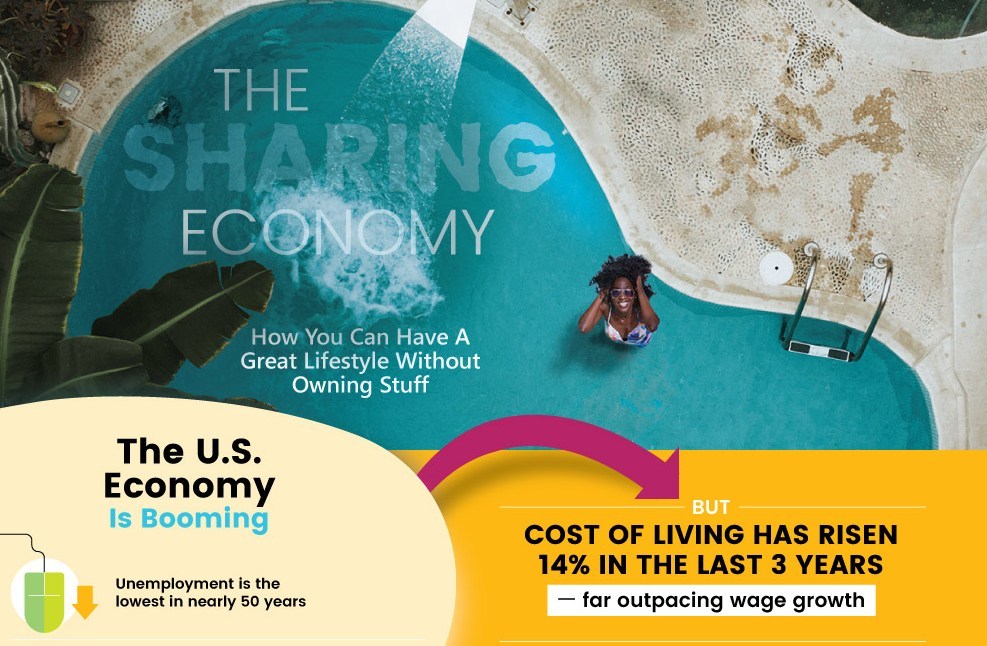The Sharing Economy Creates Opportunities To Buy Happiness

Minimalism has transitioned from a trend into a lifestyle, proving it unnecessary to own the things you desire to use to be happy. Although the sharing economy is still in its beginning stages, it provides resources that have helped millions of Americans live to their fullest potential. Let’s discuss how you can maintain a great lifestyle without owning things.
The American Economy is thriving. The national unemployment rate is at a half-century low and nominal wage growth has reached a decade pinnacle – all while the economy continues to sprout. While these economic turnarounds are noteworthy, the standard cost of living has climbed 14% within the last three years – far outpacing wage growth. Consequently, Americans are jumping through hoops to afford a great lifestyle.
From 2017 to 2018, the cost of living hiked by more than 30% in Fresno, California; Colorado Springs, Colorado; Arlington and Austin, Texas; and Columbus, Ohio. In contrast, renters in 13 states typically spend more than half of their net income on necessities. Simultaneously, real real wages haven’t changed in over 50-years. Average hourly wages sat at $20.27 in 1964, converting to $2.50 in 2018-dollars, and $22.65 in 2018.
With stagnant wages and an increasingly costly economy, luxury lifestyles are becoming as fictional as The American Dream.More than half of Americans have less than $1,000 resting in their savings account while 32% have no savings at all. In 2019, 2 in 3 Americans haven’t been able to afford a summer vacation averaging $1,979. This has heavily influenced the general decline of happiness since the 1990s.
Believe it or not, money can buy and influence happiness as it can fulfil your needs and desires, as well as reducing stress when under hardships. Furthermore, it has been reported that your emotional wellbeing increases as salaries rise, providing more comfort in your life, up to $75k per year. Self-reflections become more positive with a higher income, up to $95k per year, as well. However, the key to happiness isn’t just having money, but how we spend it.
Here’s a look at the science on buying happiness. The human mind wanders 47% of the time, often to a dark place, but anticipation and good memories counteract these negative thoughts. Participants of a 2003 study felt happier when anticipating and engaging in a planned experience to later recall on. This provides a sense of self: giving experiences to mention when telling your life story. Participants in a 2012 study feel experiences reflected their identity and values. Sharing experiences is a great way to connect with others since most people despise hearing others speak about their stuff as it could leave you feeling inferior.
The sharing economy promotes peer-to-peer platforms that provide access to shared goods and services down to transportation and lodging. Utilizing the sharing economy is an easy and environmental approach to increasing personal optimism, saving money, and even making money by turning your dormant belongings into extra cash. Discover more about the sharing economy below.
